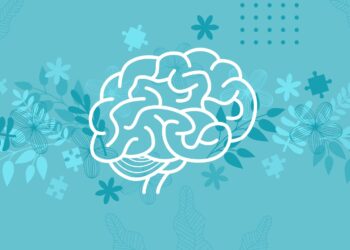Drugs can be the life of the party, but they often leave a trail of chaos in their wake. While some might think a little substance can enhance their mood or creativity, the reality is often a rollercoaster of emotional ups and downs. It’s like inviting a mischievous gremlin into your brain—fun at first, but it can quickly turn into a disaster.
How Does Drugs Affect Your Mental Health
Mental health encompasses emotional, psychological, and social well-being. It influences thoughts, feelings, behavior, and decision-making.
Definition of Mental Health
Mental health refers to cognitive functioning that impacts daily living. It includes characteristics such as emotional stability, coping mechanisms, and the ability to manage stress. Assessments often focus on resilience, interpersonal relationships, and self-perception. Conditions like anxiety, depression, and mood disorders fall under this definition. Defining mental health remains essential for understanding its complexity.
Importance of Mental Health
Maintaining mental health is crucial for overall well-being. Good mental health promotes productivity and healthy relationships. Individuals with strong mental health show resilience against stress and adversity. Additionally, mental health directly correlates with physical health outcomes, influencing behaviors like exercise and nutrition. Recognizing its importance fosters a supportive environment for discussions about mental health strategies. Prioritizing mental health helps individuals navigate life challenges and enhances quality of life.
The Relationship Between Drugs and Mental Health

Drug use significantly affects mental health, leading to a complex interplay of emotional and psychological conditions. Different substances can either heighten pleasure temporarily or exacerbate underlying mental health issues.
Types of Drugs Impacting Mental Health
Stimulants such as cocaine and methamphetamine boost energy and alertness but often lead to anxiety and paranoia. Depressants, including alcohol and benzodiazepines, initially induce relaxation but can result in depression and dependency. Hallucinogens, like LSD and psilocybin, can cause profound changes in perception, which may trigger or worsen existing mental health disorders. Opioids provide pain relief but frequently lead to social isolation and mood swings. Understanding these effects assists in creating targeted interventions.
Mechanisms of Action in the Brain
Drugs interact with the brain’s neurotransmitter systems, altering mood and cognitive functions. Stimulants increase dopamine levels, generating feelings of euphoria while disrupting normal neural communication. Conversely, depressants enhance gamma-aminobutyric acid (GABA) activity, often dulling emotional responses. Hallucinogens primarily affect serotonin receptors, influencing perception and emotional state. These alterations can initiate a cycle of dependency, exacerbating mental health issues. Recognizing these mechanisms highlights the need for comprehensive mental health treatment strategies.
Short-Term Effects of Drugs on Mental Health
Drugs can lead to significant short-term changes in mental health. The severity and type of effects depend on the specific substance used.
Mood Changes
Drugs often cause immediate changes in mood, ranging from heightened euphoria to severe anxiety. For instance, stimulants, such as cocaine, may induce feelings of exhilaration initially. Over time, these feelings can shift to irritability or agitation. Depressants like alcohol may create a temporary sense of relaxation but can soon lead to feelings of sadness and hopelessness. The rapid fluctuation in mood can create confusion and worsen underlying mental health issues. Individuals might find themselves experiencing emotional highs and lows within hours of use. Such instability in mood underscores how drugs can negatively affect emotional regulation and overall mental well-being.
Impaired Judgment
Drug use can severely impair judgment, impacting decision-making abilities. Stimulants and depressants alike can lead to reckless behavior and poor choices. For example, someone under the influence may engage in risky activities they would normally avoid. Immediate effects can cloud judgment, resulting in actions that have far-reaching consequences. Hallucinogens can distort perception, further complicating an individual’s ability to assess situations accurately. Impaired judgment often leads to dangerous scenarios, not only risking physical safety but also exacerbating mental health issues. The inability to make sound decisions highlights the pervasive influence of drugs on cognitive functions.
Long-Term Effects of Drugs on Mental Health
Long-term drug use significantly impacts mental health, leading to various complications. The connection between substance use and mental illness becomes increasingly pronounced over time.
Risk of Mental Illness
Potential mental health conditions often manifest in regular users. Drugs can trigger or deepen disorders such as anxiety, depression, and psychosis. Studies show that individuals with a pre-existing mental health condition face exacerbations when using drugs. For instance, research indicates that 50% of individuals with serious mental illness have a history of substance use disorders. This dual diagnosis complicates treatment and recovery. Furthermore, the ongoing use of substances may alter brain chemistry, leading to heightened vulnerability to these disorders.
Dependence and Addiction
Addiction develops as individuals continue using drugs, resulting in dependence. Dependence on substances leads to severe cravings that dominate thoughts and behaviors. Approximately 20% of users may develop a substance use disorder, emphasizing the importance of early intervention. Long-term repercussions include impaired cognitive functions and disrupted emotional regulation. These effects often hinder personal relationships and diminish overall quality of life. Additionally, withdrawal symptoms can intensify when attempts to quit occur, reinforcing the cycle of addiction.
Prevention and Support
Prioritizing mental well-being involves implementing effective strategies and seeking professional assistance. These approaches can significantly improve mental health and reduce the adverse effects of drug use.
Coping Strategies
Employing healthy coping mechanisms helps individuals navigate stress and emotional turmoil. Engaging in physical activities promotes endorphin release, serving as a natural mood booster. Practicing mindfulness techniques, such as meditation or yoga, reduces anxiety and enhances emotional regulation. Building strong social support networks fosters a sense of belonging and encourages open discussions about mental health. Establishing a routine offers stability and predictability, which can counterbalance the chaos that drugs may introduce. Finally, expressing emotions through journaling or creative outlets aids in processing experiences and strengthens mental resilience.
Seeking Professional Help
Accessing professional support plays a crucial role in addressing mental health challenges, and for some individuals, this may include structured care options such as Luxury Drug Rehab alongside therapy and counseling. Mental health professionals, such as therapists and counselors, can provide tailored treatment plans that address individual needs. Cognitive-behavioral therapy, for instance, effectively helps individuals develop coping skills and address negative thought patterns. Support groups create spaces for shared experiences and foster community, reducing feelings of isolation. Medications may also assist those facing severe mental health issues, helping to stabilize mood and manage symptoms. Encouragement to seek help early leads to better outcomes and strengthens the possibility of long-term recovery.
Conclusion
Understanding the effects of drugs on mental health is crucial for making informed decisions. While substances may offer temporary relief or euphoria, the long-term consequences can be devastating. Emotional instability and impaired judgment often accompany drug use, exacerbating existing mental health issues.
Prioritizing mental well-being through healthy coping strategies and professional support is essential. By fostering resilience and building strong social networks, individuals can navigate life’s challenges more effectively. Early intervention plays a vital role in breaking the cycle of addiction and improving overall quality of life. Emphasizing mental health awareness can lead to better outcomes for those affected by substance use and mental health disorders.













Discussion about this post